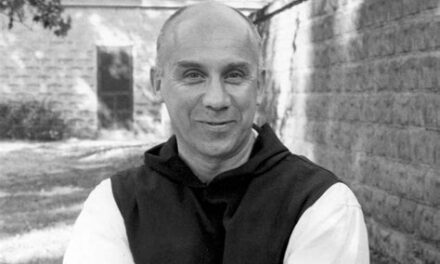Last Friday my wife and I went out for pizza at our favorite parlor; it’s become a tradition, one, I suspect, most American couples and families know very well. All one has to do is glance around the venue of choice to see people in groups having a good time. I’ll admit I don’t pay much attention to them since doing so would mean ignoring my wife. All the same, there they are.
As she and I were leaving the parlor last week, I had to dodge a waiter, and as I veered off course, I found myself nearly joining another table whose occupants I couldn’t help noticing since I was closer to them than I might have been otherwise. The group, a large one, was composed entirely of blacks. Not an unusual occurrence, you might say, and you’d be right. I thought little of it. They were talking, laughing, and enjoying themselves, just like the rest of the clientele. Since I didn’t careen into the table, they didn’t pay any attention to me as far as I could tell. In other words, I was not a threat.
You may find that statement odd. A threat? Why would I be a threat? Ask Anne Hathaway. You may recall Ms. Hathaway in any number of productions from The Princess Diaries to Les Misérables. However, in her latest role, in which I assume she’s trying to play herself, she actually tackles the allegorical part of ‘Political Conscience From Hollywood.’ I know, I know: there’s a new one every week, but that makes the role all the more challenging. Just think of it: Anne Hathaway, on the one hand, trying to re-create Robert De Niro, and, on the other, trying to say something both original and conscience jarring. Again, a genuine challenge.
Did she succeed? Not exactly. The De Niro part was weak; she never said, “You talkin’ to me?” And, to her credit, she managed to avoid the “F” word, an opportunity De Niro wouldn’t have missed. As for her lines, which, as I take it, she wrote herself (this was an Instagram, mind you), well, she’s no Shakespeare—not even Mrs. Shakespeare, in spite of her name.
The occasion for Hathaway’s mini-lecture was the savage and unprovoked murder by John Cowell, a white male, of Nia Wilson, an eighteen-year-old black girl, in Oakland. Subsequent investigation revealed Cowell as a recent prison parolee who had served two years for second-degree robbery and assault with a deadly weapon in 2016 and had been convicted of battery in 2013. All told, his recent history was one of inexplicable violence.
However, for Anne Hathaway, the crime is simply (or, to be precise, simplistically) explicable: white privilege. She wrote, “White people—including me, including you—must take into the marrow of our privileged bones the truth that ALL black people fear for their lives DAILY in America.”
The instances of absurd inclusiveness and hasty generalization in the statement almost take one’s breath away. One demented white man senselessly attacks a black woman, and suddenly we, the entire white population of America, are guilty. For what? Did we approve the crime, encourage it, or applaud it? So far no one has done so. And what does “privileged” mean? Does it mean, as it so often does, being born with a silver spoon in one’s mouth? No doubt, there are whites who were, but not many; that’s why Leftists are always mouthing about the “one percent.” My own association has been mostly with middle-class (upper and lower) and sometimes poor whites. Few I’ve known could reasonably be called “privileged.” Maybe Hathaway, in her formative years, spent too much time on the set of The Princess Diaries to know how most whites live.
Then there’s the statement about “All black People.” Are they really afraid for their lives “DAILY”? The black family I saw at the pizza parlor last week didn’t cower under the table as I passed by; they talked, laughed, and ate. I was a human being; they were human beings—eating pizza, a privilege in its way shared by many of us regardless of color and enjoyed without fear. Was Nia Wilson nervously watching for predatory, privileged (by definition!) whites on the train platform when she was attacked? Evidently not. But if America is what Anne Hathaway declared it to be, surely Nia Wilson and her sister, who was also attacked, should have been wary and fearful as a matter of habit. Apparently, they weren’t. They were going about their business, as victims of violent crime frequently do, when John Cowell, whose past indicates no appreciation of moral and societal restraint, came their way for reasons no one has been able to fathom yet.
There are men and women in this country, white, black, and brown, who are like John Cowell, just as there have been in every known country on the globe throughout history. There always will be. That’s why the universal prohibition against murder, expressed in law, exists everywhere. It goes without saying that such a crime is normally the exception. It certainly is in our country, which has seen a drop in murder over the last few years. But in places where crime becomes epidemic, chaos reigns.
It is typical of the utopian mentality to heap one’s enemies into a dark collective, and there’s no better occasion for doing so as when outrage occurs. The guilt of one can be conveniently expanded as an indictment of the opposition. Anne Hathaway (net worth, 35 million) magnanimously included herself among the “privileged,” but her sudden and brief tirade makes one wonder whether she’s lost much sleep over her part in Nia Wilson’s death.
The sad truth is, the plight of the wretched and downtrodden of the earth (i.e., Les misérables) has become for Leftists little more than an occasion for moral grandstanding, in this instance, at the expense of “white” Americans in fly-over country, people—some good and some bad—who work, pay taxes, abide by the law, and in most instances feel outrage when notorious crimes are committed.
But don’t ask Anne Hathaway who they are. She doesn’t know them although she thinks she does. It’s a flat delusion. For her, one size fits all, when applied to white America or white anywhere, the collective bogeyman du jour. To such a benighted mind, white Bonhoeffer and white Goebbels get the same damning judgment.
Incapable of making fine and necessary distinctions in matters of society and politics, Anne Hathaway, along with those who share her views, has what Colombian-born philosopner Eliseo Vivas described as a “coarse mind”: one that “thinks in terms of unqualified assertions, apodictic convictions, in terms of very black blacks and blinding whites.”














